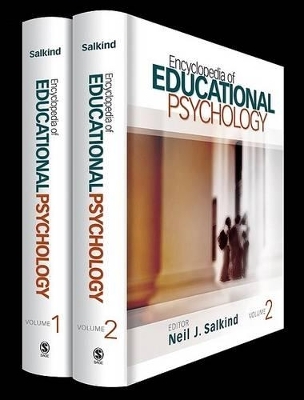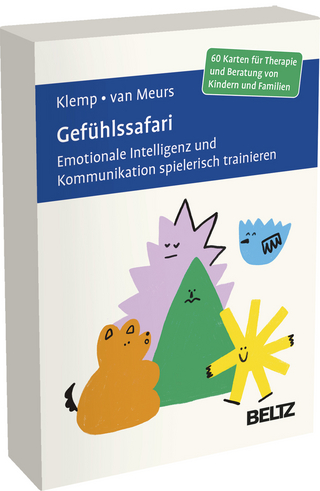
Encyclopedia of Educational Psychology
SAGE Publications Inc
9781412916882 (ISBN)
"From applied behavior analysis to vicarious reinforcement, overviews of theories outline concepts basic to the field of educational psychology. Each of the 275 scholarly articles give sample suggestions for further research. All told, the set provides a useful introduction to a bourgeoning area of study and is highly recommended for academic libraries."
—John R. M. Lawrence
"This comprehensive, informative, cross-disciplinary, and authoritative encyclopedia supports a holistic approach to preschool to adult education and would make a welcome addition to any undergraduate collection."
—Library Journal
Educational Psychology is a special field of endeavor since it strives to apply what we know about many different disciplines to the broad process of education. In the most general terms, you can expect to find topics in this area that fall into the categories of human learning and development (across the life span), motivation, measurement and statistics, and curriculum and teaching. There are few comprehensive overviews of the field of educational psychology, and the purpose of this two-volume Encyclopedia is to share this information in a way that is, above all, informative without being overly technical or intimidating.
With more than 275 contributions, the Encyclopedia of Educational Psychology opens up the broad discipline of educational psychology to a wide and general audience. Written by experts in each area, the entries in this far-reaching resource provide an overview and an explanation of the major topics in the field of human development. While the Encyclopedia includes some technical topics related to educational psychology, for the most part, it focuses on those topics that evoke the interest of the everyday reader.
Key Features
Addresses topics that are of particular interest to the general public such as vouchers, Head Start, divorce, learning communities and charter schools
Shares subjects that are rich, diverse, and deserving of closer inspection with an educated reader who may be uninformed about educational psychology
Draws from a variety of disciplines including psychology, anthropology, education, sociology, public health, school psychology, counseling, history, and philosophy
Presents many different topics all tied together by the theme of how the individual can best function in an educational setting, from pre-school through adult education
Key Themes
Classroom Achievement
Classroom Management
Cognitive Development
Ethnicity, Race, and Culture
Families
Gender and Gender Development
Health and Well-Being
Human Development
Intelligence and Intellectual Development
Language Development
Learning and Memory
Organizations
Peers and Peer Influences
Public Policy
Research Methods and Statistics
Social Development
Teaching
Testing, Measurement, and Evaluation
Theory
This practical Encyclopedia brings the field of educational psychology to the everyday person making it a welcome addition to any academic or public library.
Neil J. Salkind received his PhD in human development from the University of Maryland, and after teaching for 35 years at the University of Kansas, he was Professor Emeritus in the Department of Psychology and Research in Education, where he collaborated with colleagues and work with students. His early interests were in the area of children’s cognitive development, and after research in the areas of cognitive style and (what was then known as) hyperactivity, he was a postdoctoral fellow at the University of North Carolina’s Bush Center for Child and Family Policy. His work then changed direction to focus on child and family policy, specifically the impact of alternative forms of public support on various child and family outcomes. He delivered more than 150 professional papers and presentations; written more than 100 trade and textbooks; and is the author of Statistics for People Who (Think They) Hate Statistics (SAGE), Theories of Human Development (SAGE), and Exploring Research (Prentice Hall). He has edited several encyclopedias, including the Encyclopedia of Human Development, the Encyclopedia of Measurement and Statistics, and the Encyclopedia of Research Design. He was editor of Child Development Abstracts and Bibliography for 13 years. He lived in Lawrence, Kansas, where he liked to read, swim with the River City Sharks, work as the proprietor and sole employee of big boy press, bake brownies (see www.statisticsforpeople.com for the recipe), and poke around old Volvos and old houses.
| Erscheint lt. Verlag | 5.3.2008 |
|---|---|
| Verlagsort | Thousand Oaks |
| Sprache | englisch |
| Maße | 215 x 279 mm |
| Gewicht | 3940 g |
| Themenwelt | Geisteswissenschaften ► Psychologie ► Entwicklungspsychologie |
| Geisteswissenschaften ► Psychologie ► Pädagogische Psychologie | |
| ISBN-13 | 9781412916882 / 9781412916882 |
| Zustand | Neuware |
| Informationen gemäß Produktsicherheitsverordnung (GPSR) | |
| Haben Sie eine Frage zum Produkt? |
aus dem Bereich


